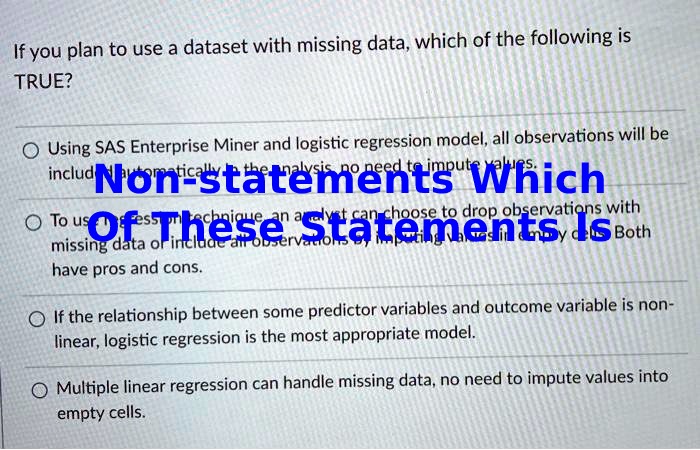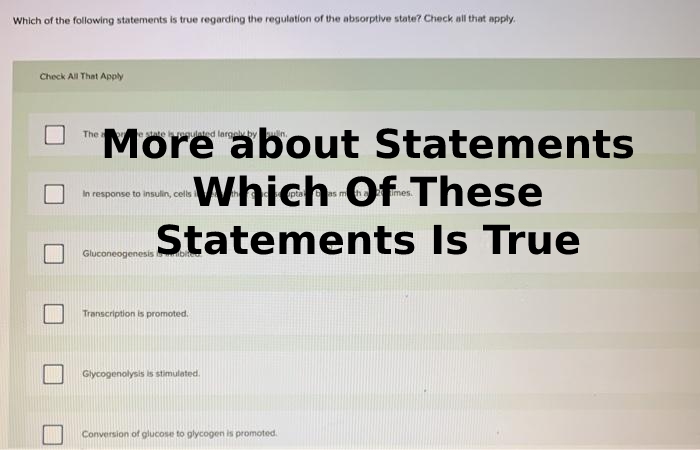Table of Contents
What Are Statements? Definition and Examples
Definition: Statements are the kind of judgments that are either true or false.
Which Of These Statements Is True – A statement is that something is or is not the case. An assertion is true if what it asserts is true and false if what it proclaims is not.
For example, the statement “Trains are always late” is only valid if what you are describing is the case, if it is true that the trains are always late. This is wrong in Auckland. Sometimes the trains are on time, and sometimes they are early. Someone can readily complain that trains are always late expressing their exasperation with the rail system, but strictly speaking, what they say is false.
Bananas are boneless, and I love bananas, but I love bananas because they are tasty and healthy, not boneless. So, therefore, I would say something wrong if I said, “I like bananas because they have no bones.” So “I like bananas because they have no bones” is a statement. So this is the type of sentence that is true or false, in this case, false.
Non-statements Which Of These Statements Is True

However, it makes no sense to say the phrase “Welcome to the University of Auckland!” Is true or false. Wouldn’t you be surprised if someone answered “true” in response to greetings? It would not be an adequate response. “How do I stop chasing?” ” It’s a question; the sentence does not express something true or false.
Finally, “when the car in front of you hits an object, make sure you can count up to four crocodiles before you hit the same object.” It is advice. He advises you to make sure that you can count up to four crocodiles (one crocodile, two crocodiles, four crocodiles) before reaching the same object as the car in front of you. Give it a try! You will be a much safer driver (that’s a valid claim!).
More about Statements Which Of These Statements Is True

So, verdicts that can be true or false are statements. But things can get more complicated. Let’s see how.
Something can be a statement even though we don’t know if it’s true or false. All that matters about words is that they’re the kind of things that can be right or wrong, not whether we know whether they are right or wrong. For example:
- Ivan Slotvsky, the famous Irish builder of Madrid, is eating ham and chutney steaks right now.
True or false? I don’t know. But it is the kind of thing that could be true or false.
Here’s another one:
- Sometime in the next 39 years, I will have a creepy next-door neighbor.
More Information:
So far, so good. I was lucky and didn’t have a scary neighbor. But the claim is valid if one day you have a creepy neighbor in the next 39 years. Otherwise, the claim is false. But I don’t know if the statement is true or false. Either way, what matters is that this phrase is the kind of thing that’s right or wrong. You can get more details through online learning to improve your knowledge.
Another example:
- Vero is part of Promina
I have no idea what Vero or Promina is. But the sentence expresses something true or false.
The same statement may be true on some occasions and false on others. In other words, the ideas are not always accurate or consistently wrong.
Here is an example :
- I am a kiwi.
This statement is true for Tim, and it is false for Patrick. or the declaration
- Patrick is a married and happy man.
It was wrong before Patrick got married, it is true now (as of this writing), and it could become false in the future. You can also refer the related websites and get brief information.
